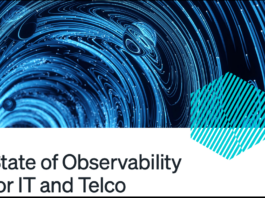In the insurance industry, many aspects of the job cannot be left to a machine — client reassurance and personalised advice, for instance.
On the flip side, for such tasks and processes that could use a digital helping hand, technology is seen as an ally rather than an adversary, at least in the case of insurer AIA Berhad.
Desmond Foo, Director, Head of Data Analytics & AI at AIA Berhad, sat down with Frontier Enterprise to talk about their data strategy, from infrastructure to analytics, to AI use cases.
Can you give us a bird’s eye view of your digital transformation?
As part of our tech and data strategy, we have developed a range of analytics and AI-driven solutions, deploying them across our entire customer journey. There has been a significant focus on operations, particularly in providing a leading customer experience. We leverage advanced analytics and AI capabilities to drive process automation and cost efficiency, aligned with our business growth agenda.
Over the past three years, we have undergone the first phase of our transformation journey. The next phase, which we call TD 2.0, will take place over the next three years, focusing on delivering more advanced analytics and AI capabilities to support sustainable growth.
What sort of business functions are you most deploying analytics for?
Our key analytics solutions have primarily focused on distribution and operations. We leverage internal datasets generated from our interactions with customers, including their product holdings, servicing interactions, payment transactions, and claims behaviours.
Additionally, we use innovative data sources related to customers’ lifestyle activities, such as their exercise routines and dietary habits. Recently, we have started incorporating external data to gain deeper insights into our customers’ digital footprints, which is essential for enabling hyper-personalised engagement and improving customer service.
You mentioned leveraging lifestyle data. How is that data collected?

We have moved beyond conventional insurance products, where customers simply buy life or medical insurance and receive protection as long as they pay their premiums. We don’t just want our customers to pay premiums and make claims when they need to be hospitalised or whatnot; We aim to help them live a healthier lifestyle. To achieve this, we integrate our protection products with a health-driven solution called Vitality. AIA Vitality is coupled with many of our life and medical products, helping customers track their physical activities and even the types of food they eat.
When customers consume a meal, they can take a photo of it, and through AI, we can identify the food and tabulate the calorie intake. This, along with data from wearable devices, helps track their activity levels. These activities translate into Vitality Points, which can upgrade a customer’s status from bronze to gold to platinum. Customers who reach platinum status receive extra coverage at no additional cost, encouraging them to live healthier lives.
Digging deeper into your IT infrastructure, could you tell us how you are leveraging Oracle’s solutions?
We leverage Oracle ExaCC (Exadata Cloud@Customer) as our key relational database management system (RDBMS) to run our enterprise data management platform, One Data. One Data provides our business with critical data and analytic capabilities necessary for sustainable growth. During the tech selection process, we considered several RDBMS options, but we needed to address key considerations such as data sovereignty, data residency, and processing in a public cloud environment.
ExaCC offered a unique proposition with a high-performing, robust RDBMS platform that provides scalability, reliability, and speed while allowing us to manage and run our data platform within a private, secure data centre environment. It combines cloud-based operations with the security of our private data centre.
Going into AI, could you share some of the business use cases you have already developed at AIA Berhad?
We have developed a range of AI-enabled capabilities deployed across our customers’ and agents’ journeys. Starting with the underwriting process, we use AI and machine learning to automate key underwriting decisions, such as risk scenarios that previously required manual handling by our underwriters. Today, AI allows us to automate these decisions, enhancing straight-through processing for our underwriting team.
In our servicing journey, we have implemented AI chatbots and talk bots to facilitate key interactions with our customers, providing 24/7 access to our servicing capabilities. Additionally, in the claims journey, we use AI-enabled solutions to automate our medical claim adjudication process. This not only improves our fraud detection but also significantly reduces the turnaround time for processing and issuing hospital guarantee letters, from hours to minutes.
Has there been any sort of pushback or challenge integrating AI with your agents’ regular work?
Insurance is essentially a people business. Our distribution relies heavily on people-based interactions, so any technology like AI is not going to replace the work our agents do. However, our dynamic and forward-looking agency team recognises the importance and value of AI-enabled solutions provided through our transformation program. With AI, we help them answer many basic questions their customers or our call centre team might ask, saving them time and allowing them to focus more on growing the business.
Over the last one to two years, we have seen progressive adoption of AI by our agency team. For example, with the launch of Customer 360, now called Customer 720, we have an AI-driven solution that identifies customers who are highly likely to repurchase. It recommends products to these customers, increasing the likelihood of repurchase. The use of Customer 720 has significantly uplifted our repurchase rate. In terms of annualised premium generated from this AI solution, the return within six months has been in the range of hundreds of millions of ringgit. This demonstrates the value of AI-enabled solutions to our agents, and they are increasingly looking to adopt more solutions from our transformation program.
Is this some sort of internally-developed machine learning engine that you guys have on board?
Customer 720 is a fully in-house developed solution, primarily involving data science work and the creation of AI and machine learning models for repurchase propensity. This required significant integration and front-end development work to incorporate the models into our life planner apps.
We really started with Customer 360, which provided a holistic view of the customer using internal data. Due to the encouraging results observed in the first year, our agency team expanded it into version two, calling it 720. The name 720 signifies the combination of internal and external views of the customer, with each representing a 360-degree perspective.
What are your plans for the future in terms of your Oracle deployment?
We plan to continue using Oracle ExaCC as the RDBMS engine powering our enterprise data management platform. Additionally, we leverage other Oracle products, such as Oracle GoldenGate, to integrate our data platform with operational source systems, enabling real-time or near real-time data ingestion from the previous platform into our One Data platform.
In the longer term, we are exploring Oracle’s autonomous database (ADB) product. We are currently undergoing proof-of-concept testing. If the results are positive, we plan to deploy ADB to achieve greater operational efficiency in maintaining and running our databases.



